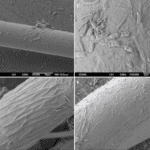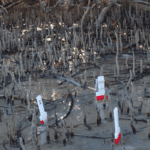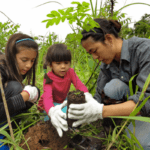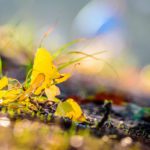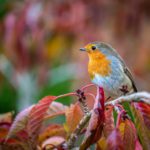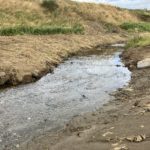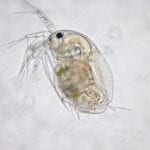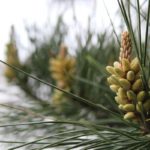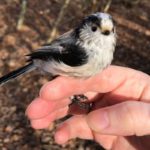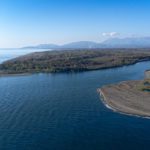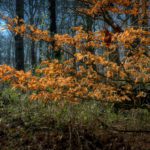Microfibres in the Mediterranean are floating homes for bacteria
Almost 200 species of bacteria colonize microfibres in the Mediterranean Sea, including one that causes food poisoning in humans, according to a new study...
Mangroves are environmental guardians of the coastline, says research
They are the salt-tolerant shrubs that thrive in the toughest of conditions, but according to new research, mangroves are also avid coastal protectors, capable...
Fifteen ways to reforest the planet: Latest research profiled in publication
A dedicated issue of the Royal Society’s Philosophical Transactions explores the latest scientific advances in forest restoration.
“This paves the way for evidence-based, on-the-ground action...
Bough selecta: Platform assists tree recording for citizen science
“Earth observation and smartphones enable everyone to support environmental regeneration“, says firm
A Cornwall-based agri-tech start-up has created “the world’s first global tree platform“ for...
Forensics used to reverse the decline of biodiversity in Europe
Staffordshire University is contributing forensic intelligence to an ambitious project which aims to protect endangered species like wolf, bear, lynx, and sturgeon in remote...
Project aims to protect and connect nature across Europe
The Horizon Europe NaturaConnect Project is intended to support European Union governments and other public and private institutions in designing a coherent, resilient and...
Continued disruption of seasonal weather is causing spring activities in autumn
After a year which saw a ‘split spring’, heatwaves, droughts and a false autumn, the UK’s wildlife may be starting to confuse its seasonal...
Ecological Threat Report says 750 million globally are now affected by undernourishment
The latest edition of the annual Ecological Threat Report (ETR) - produced by the Institute for Economics and Peace (IEP)* - pinpoints trouble hotspots...
Projects aim to bring life back to Scotland’s rivers
The Scottish Environment Protection Agency (SEPA) says it is continuing its efforts to restore nature to Scotland’s rivers with the completion of two more...
Ancient bacteria might lurk beneath Mars’ surface
New study finds the chances of uncovering life on Mars are better than previously expected
When Mars’ first samples return to Earth, scientists should be...
Water fleas as ‘canaries in a coal mine’ offer key to managing chemical pollution
Water fleas, or Daphnia, could provide an important ‘early warning system’ for chemical pollution in our lakes and rivers and, where prevention to...
Conifer communication is complex and can be altered by air pollution
Conifers are dominant tree species in boreal forests, but they are susceptible to attack by bark beetles. A new study from the University of...
A road runs through it: Bird conservation in Essex
A plot of land next to one of the busiest roads in Essex has become a home for a variety of endangered wild birds,...
Interactive map charts sea incursion in Mediterranean coastal wetlands
An interactive map and database simulates the rise in sea levels faced by Mediterranean coastal wetlands over the coming century – and illustrates the...
New measures and research needed to tackle ecological impact of pharmaceuticals
A group of international researchers has issued a warning about the increase in pharmaceutical contamination in the environment, with suggestions about how it might...
First-of-a-kind database tracks agricultural phosphorus use worldwide
Researchers from the University of Maryland Centre for Environmental Science have released a seemingly first-of-a-kind study quantifying cropland phosphorus budgets around the world, which...
Smokers blind to devastating impact of butts on the environment, suggests survey
New research from environmental charity Hubbub seems to reveal just over 1 in 4 smokers (28%) are aware that cigarette butts are made from...
Report highlights “glaring gap in the UK’s Net Zero Strategy”
A new report sets out to explain - in direct terms - why the UK Government’s current Net Zero Strategy (NZS) falls significantly short...
Conservationists from six nations vow to save the Irish Sea
Conservationists from around the Irish Sea say they are looking to turn a tide of inaction to ensure the Irish Sea and all its...
Comment: The UK Government’s deregulation agenda is dangerous
For the good of future generations, we must retain existing laws and improve protections for nature, writes Joan Edwards, director of policy for The...


